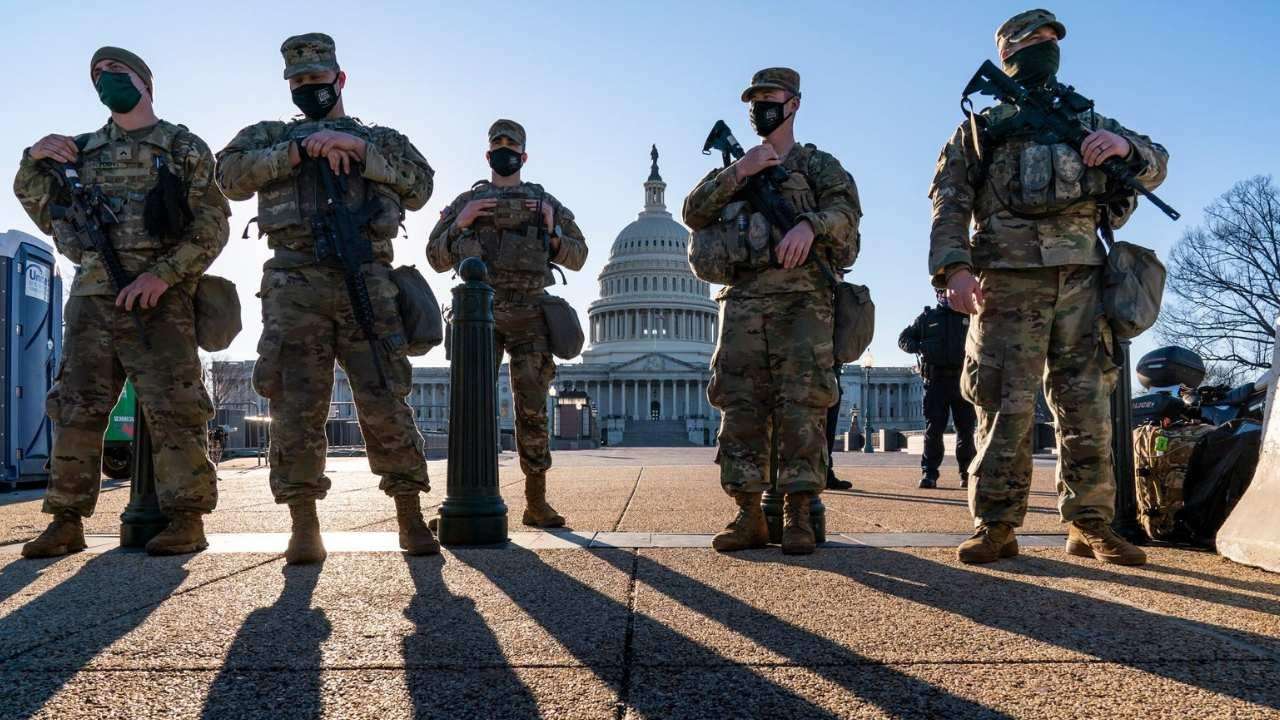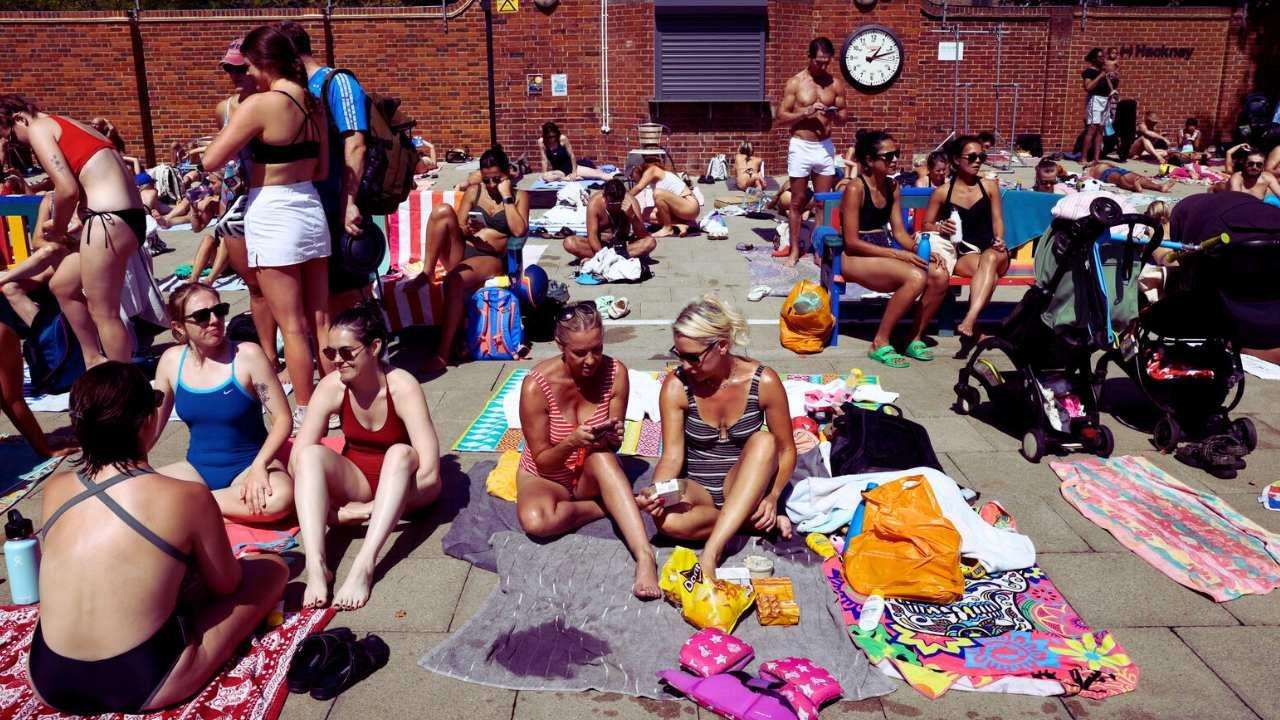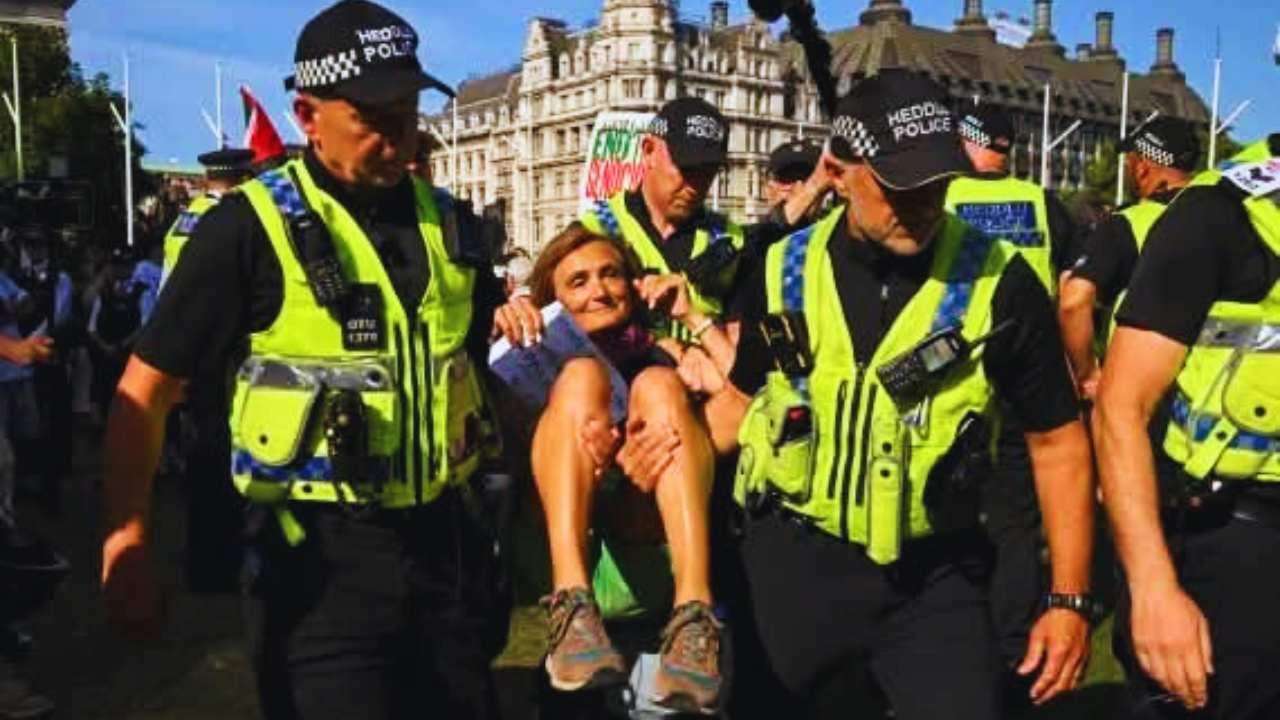A controversial wave of arrests at a recent protest in Parliament Square is raising serious questions about the application of the Terrorism Act 2000. On Saturday, police detained an unprecedented number of peaceful protesters, sparking a widespread feeling that the response was not only disproportionately heavy-handed but also politically counterproductive. The government's aggressive move, intended to crack down on support for the recently proscribed Palestine Action, has instead created a public relations and political nightmare, generating global media attention and a surge of empathy for the cause.
In a staggering show of force, the Metropolitan Police arrested over 522 protesters for holding placards declaring: "I oppose genocide, I support Palestine Action." This number, achieved within a matter of hours, dwarfs the total of 248 people arrested in all of 2024 for terrorist-related activity across the entire country.
Approximately half of those arrested and subsequently dubbed "march martyrs" were over 60 years old, with reports of 15 octogenarians among them. The sight of police officers carrying off these older, sometimes frail, individuals has been widely described as "uncomfortable" and "absurd" by onlookers and critics alike. Many of the elderly protesters were met with applause from the crowds as they were hauled away.
The sheer scale of the arrests overwhelmed police resources, forcing the Met to implement a "street bail" system to prevent police stations from being completely overrun. Organizers of the protest, hailing it as a "momentous act of collective defiance," have claimed victory, arguing the police's inability to process all the arrests proves the new ban is "unenforceable."
Also read: London's Mass Arrests Expose UK's Troubling Double Standards
Critics argue that detaining peaceful protesters under Section 12 of the Terrorism Act 2000, with the threat of a 14-year prison sentence, is an excessive and inappropriate measure. Some have drawn parallels to authoritarian regimes, suggesting that if similar arrests were to happen to dissidents in a country like Russia, there would be a much louder international outcry. The fact that these arrests occurred in the UK, a nation that prides itself on freedom of speech, has prompted a deeper examination of British laws, particularly the Human Rights Act of 1998 and the European Convention on Human Rights.
Prominent Figures Detained Fuel Public Outrage
The public outrage has been intensified by the detention of prominent and respected public figures. Among those at risk of acquiring a criminal record is Jonathon Porritt, a well-known environmental campaigner and former adviser to King Charles. His alleged "crime" was simply waving a piece of cardboard in support of Palestine Action.
Another extraordinary case is that of Alice Oswald, a 58-year-old former Oxford professor of poetry and winner of the TS Eliot Prize. As a respected poet, she is seen as the polar opposite of a "hate-preacher." Oswald commented on the situation, observing the visible discomfort of some of the arresting officers. "Clearly, there were some police officers who were really struggling with what they had to do," she stated, adding that she told them in the police van to "write to Yvette Cooper and tell her that this is making your life impossible."
Amnesty International has joined a chorus of voices condemning the arrests, with its Chief Executive Sacha Deshmukh describing the government's response as "disproportionate to the point of absurdity."
Labour Party's Crisis with Muslim Voters Deepens
The government's aggressive stance and the subsequent backlash have exacerbated a growing political crisis for the Labour Party. The arrests have intensified a long-standing dissatisfaction with Labour's position on the Israel-Gaza conflict among British Muslims and those with strong pro-Palestinian sympathies.
Recent polls have shown a dramatic decline in support for Labour within the Muslim community. Data from surveys indicates that while over 86% of British Muslims voted Labour in previous elections, that support has plummeted, with a significant number now undecided or considering independent pro-Palestine candidates. Polling also reveals that a majority of British citizens, and a particularly high number of Labour voters, oppose Israel's military actions and believe the UK should suspend arms sales and immediately recognize a Palestinian state.
Labour's leadership, under fire for its perceived timid stance on Gaza, is now facing a fierce internal and external backlash. Labour MPs, including John McDonnell and Nadia Whittome, have publicly condemned the arrests. The unfolding situation has further alienated a key demographic for the party, with many Muslim voters feeling marginalized and unheard. For many, the crackdown on peaceful protest is seen as a direct attack on their right to express empathy and solidarity with the Palestinian people, a position that many believe Labour has failed to adequately defend. The government's actions have inadvertently provided a powerful rallying cry for Palestine Action and its supporters, transforming a fringe protest into a headline-grabbing movement that is now successfully garnering empathy from a much wider audience, including those who may not have previously supported the group. The focus on peaceful, elderly protesters being arrested under terror laws has proven to be a highly effective, albeit unintended, public relations victory for the cause.
The Question of "Terror" and Free Speech
A central point of contention is the decision to proscribe Palestine Action as a terrorist organization. While the group has used force and violence against property—including damaging RAF aircraft—many argue that this does not constitute "terror" in the same vein as the atrocities committed by Hamas on October 7, 2023. Critics point out that supporting Palestine Action does not automatically equate to supporting Hamas. The authorities have alluded to a "dark side" of Palestine Action that cannot be disclosed for security reasons, but for many, this justification is not convincing enough to warrant putting a celebrated poetry professor in a jail cell.
Home Secretary Yvette Cooper has continued to defend the proscription, citing intelligence of "ideas for further attacks" that cannot be disclosed due to ongoing legal proceedings. However, the defiance of hundreds of protesters and the logistical challenges faced by the police have led Palestine Action co-founder Huda Ammori to claim that the ban is "unenforceable." She said the mass arrests would "go down in our country's history as a momentous act of collective defiance."
The article concludes by highlighting a quip from Private Eye that contrasts "unacceptable Palestine Action: spraying military planes with paint" with "acceptable Palestine Action: Shooting Palestinians queuing for food." The author ends by stating that they have now also quoted this, and asks, "Should I now expect to be arrested? And if not, why not? I’m fashionably old eno" to underscore the perceived absurdity of the situation.








.svg)
